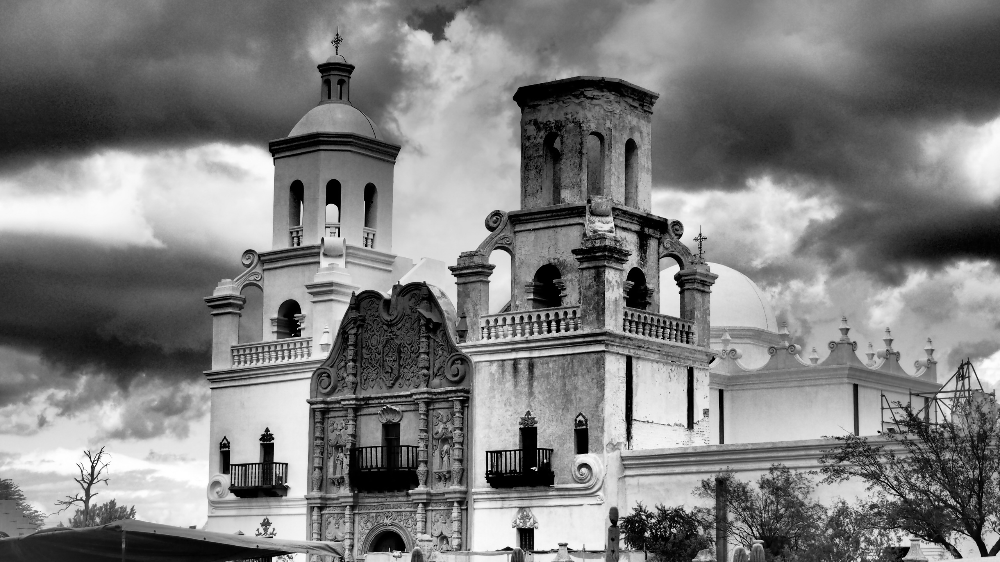POPE FRANCIS | AMORIS LAETITIA: ON LOVE IN THE FAMILY*
Pope Francis met with lay persons and clergy for two years in the synod process to examine the issues facing the modern family and the Church’s response to those issues. The word synod comes from the Greek meaning word for meeting and is synonymous with the Latin word meaning council. The post Synodal exhortation by Pope Francis, Amoris Laetitia, was released on April 8, 2016. The Synods’ participants formed small discussion groups some of which began by sharing their own family history. The process allowed for an examination of the situation of families in today's world. According to Pope Francis, Amoris Laetitia, was written as a help and encouragement to families in their daily commitments and challenges. He judges the Exhortation is especially timely in this Year of Mercy. The summary of the exhortation is our personal examination of the exhortation, not that of the Catholic Church. We find the exhortation to be very life-giving, optimistic, realistic and tender-hearted.
GOD’S CALL TO MARRIED COUPLES
- The family is the living reflection of the Triune God (p. 15)
- The parents are in some sense the foundation of the home; the children are like “the living stones (p. 17).” The family is the image of God who is the communion of persons (p. 53).
- Marriage is a vocation, inasmuch as it is a response to a specific call to experience conjugal love as an imperfect sign of the love between Christ and the Church (p. 54).
- “A kind look” is essential” (p. 71). The aesthetic experience of love is expressed in the “gaze,” a look of appreciation for all persons (p. 85).
- Living in a family makes it very hard to feign or lie; we cannot hide behind a mask (p. 204).
- The spirituality of family love is made up of thousands of small but real gestures (p. 204).
Reflection Questions**
- How are parents the rocklike foundation of a family and their children the “the living stones?”
- How is a family the image of God?
- What does the Pope mean by a “kind look?”
- What couples do you know who have that “gaze?”
- Why can we not feign or lie in a family?
- What are examples of the thousands of small gestures we make in a family setting?
OBSTACLES/CHALLENGES TO LIVING OUT OUR CALL
- Individualistic culture caught up with possessions and pleasures (p. 28).
- Marital problems confronted too hastily without patience.
- We encounter problems whenever we think that relationships or people ought to be perfect, or when we put ourselves at the center…. (p. 67).
- Each must set aside all illusions and accept the other as he or she actually is: an unfinished product, needing to grow, a work in progress. A persistently critical attitude towards one’s partner is a sign that marriage was not entered into as a project to be worked on together… (p. 139).
- Family crises not faced together (p. 149). Conversely, few human joys are as deep and thrilling as those experienced by two people who love one another and have achieved something as the result of a great, shared effort (p. 89).
- Obstacles: fear of permanent commitment, obsession with free time, pressure to not start a family, pornography and commercialization of the body (p, 32-33), exhausted parents (p. 41),
- insufficient quality time to talk and listen (p. 143), entertainment media (p. 175) overuse of smart phones (p. 176).
Reflection Questions
- What possessions and pleasures keep us from being a sign of Christ’s love?
- Why do couples too hastily separate and divorce?
- How do I unfairly think my spouse should be perfect?
- How are each us, in the Pope’s words, an “unfinished product, a work in progress?”
- What are personal examples of family crises that can tear us apart?”
- In addition to your children, if blessed with them, what have or would the two of you like to achieve with a “great shared effort?”
- “Which of the obstacles challenge you individually and as a couple?”
GRACES FOR LIVING OUT OUR CALL
- Sacraments: Touched by the power of grace experienced in sacramental Reconciliation and in the Eucharist (p. 31).
- Words of Affirmation: In a family three words need to be used: “Please,” “Thank You,” “Sorry.”
- Acts of Service: Growth can only occur when we respond to God’s grace through constant acts of love, acts of kindness… (p. 89).
- Listening: Listen patiently; don’t speak until the time is right (p. 90). Often the other spouse does not need a solution (p. 91). Put ourselves in our spouse’s shoes (p. 91).
- Dialogue: Dialogue is our way of asking and responding to questions, the tone of voice we use, and any number of factors that condition how well we communicate. Dialogue is essential for experiencing, expressing and fostering love in marriage and family life (p. 90).
- Forgiveness: Forgiving assumes one has had the experience of being forgiven by God, justified by his grace and not by our own efforts.
- Sexuality: …seen as a gift from God that enriches the relationship (p. 98).
- Community: …Jesus and his family readily interacted with the wider family, the relatives of his parents and their friends, which explains how Mary and Joseph could imagine for a whole day that the 12-year-old Jesus was somewhere in the caravan (p. 117).
Reflection Questions
- How do the sacraments of Reconciliation and the Eucharist empower married couples?
- How often do we use these three words— “please, thank you, sorry”—in our family?
- Why is listening with our whole heart sometimes so difficult?”
- Do you experience being forgiven by God?
- How is our sexuality a gift from God?
- How would parents react today if their child was missing for a day?
* Excerpted from: Pope Francis. 2016. Amoris Laetitia: On Love in the Family. Our Sunday Visitor Publishing Division: Huntington, Ind.
** The reflection questions and excerpted material is the work of Charlie and Marty Coe, decide2love.com
Marty and Charlie Coe
have 35 years of Marriage Preparation and Enrichment Experience. They have written a book of exercises and insights to help you in your marriage. LOVE IS A DECISION
is available as a downloadable pdf file at http://www.decide2love.com.

It is with great sadness that I share the news that Charlie has passed. Charlie & Marty have been an inspiration to so many people whom their lives have touched. May we remember and share the love that he so freely gave and keep Marty and Lincoln in our prayers. He is dancing in heaven with his daughter Heidi now. https://www.dignitymemorial.com/obituaries/raleigh-nc/charles-coe-9028718

How do today’s couples meet? In our day, many eons ago, couples mostly met in college or high school, in bars, at church or at work. As a non-churchgoer, Charlie mostly met ladies in pubs or went on “blind” dates with decidedly mixed results. Marty dated guys in college and fellow teachers after graduation. In our day, the pressure was great to be engaged before graduation from college. Ladies not engaged by then were deemed “old maids.” Far different now, the average guy and woman marry at age 32 and 28, respectively. Also changed is how couples meet. Most commonly they met at work, in high school, in college, in church, or in a pub, but the dating scene dramatically changed in 1995 when Netscape launched its dating site—match.com. In the 2010’s online dating apps moved from the laptop to the phone. In 2013 the app, Tinder, enabled one to simply swipe right for “yes” or left for “no” as to express one’s or lack thereof. A phone-based app is more immediate, personal, and public than using a keyboard. Initially, many couples felt embarrassed that they had met online. Now, however, with its increased incidence, most couples feel comfortable sharing that they met online. More commonplace, the percentage of couples who met via the Internet grew from 0% in 1995 to 22% in 2010 with the methods below decreasing: Via a mutual friend—38% to 28% Via a high school friend--10% to 2% Via a fellow church member—8% to 2%. Remaining mostly the same were couples who met in met in bars/restaurants (22%) and college (10%). Notable findings regarding digital dating include, Couples who met through online services are slightly more satisfied than those who meet by the other means. More mixed-race couples meet online than by more traditional dating methods Men liked 60% of the women they met digitally, whereas women liked just 6% of the men. The least attractive women are as desirable to men as are the most attractive men to women. Men’s desirability of women is highest at age 18, but after that declines. In contrast, women’s desirability of men does not decrease until men are 50. For many, trawling for matches is exhaustingly frustrating, and 5% of men never match. In our marriage preparation work, we are quite struck by how few of the couples would have met through traditional dating methods. For example, the daughter of good friends met her future husband while he was serving on a Navy ship in the North Atlantic. Source: The data are drawn from Putting the Data into Dating, (2018), The Economist (Volume 428, Number 9105)

“In this sense, it is less a matter of searching for God than of allowing oneself to be found by Him in all of life’s situations, where He does not cease to pass and where He allows Himself to be recognized once He has really passed.” James Martin. 2010. The Jesuit Guide to (Almost) Everything. New York: Harper Collins. P. 98. (Marty) Two weeks ago we flew to Tucson, Arizona for a 9-day exploration of Southwest Arizona, five days of which was on a tour conducted by the Road Scholar organization. Upon our return home, we stumbled on this quote above, which prompted us to reflect on how God found us on our trip. We realized that God found us through experiences, nature, places, people, and via the Holy Spirit. Let us share how God was present to us. Finding God in Experiences (Marty) I found God at the Tucson Rodeo in the singing of the national anthem with a group of very strong patriots standing under the huge Arizona blue sky. My heart was filled with love for my country. I was also moved at the sight of the horseback riders in the arena bearing the flags of all the branches of the armed services. There was such a strong sense of gratitude for all the men and women in the military. (Charlie) I found God singing old cowboy songs played by a local cowboy guitar guy. “Home, home on the Range, ”Back in the Saddle Again,” “Riders in the Sky,” “Cool Water, “were among the songs that reminded me of my youth and my favorite cowboys like Roy Rogers, Gene Autry, and especially Lash Larue. Now please take time to reflect on a recent experience in which God found you. Finding God in Nature (Marty) I loved seeing and being surrounded by as many different plants and trees. Having four mountain ranges surrounding the city gave me a feeling of awe and grandeur. Honestly, I could see a vision of Don Quixote in the Saguaro cactus plants tall arms. (Charlie) I am totally color blind, so the world is mostly green to me. But watching the sun rise over the mountain ranges in a bright color, maybe yellow, touched me. I thanked God for making Himself clear even to disabled me. On another occasion, we took a tram up Sabino Canyon, dwarfed by sheer mountains on each side. I felt humbled, awed, and for some reason a bit scared. Finally, we had the area’s first rain in a long time. Every drop is precious there, just as is every second of our lives. Now please take time to remember a recent time when God found you through nature. Finding God in Places (Marty) I found God, or He found me, in the historic Church of San Xavier Del Bac founded by the Jesuit Priest, Fr. Kano, in 1692 located on an Indians Reservation south of Tucson and rebuilt by the Franciscans in 1785. Called the “White Dove of the Desert,” filled with saints and angels, the church is lovingly being restored by volunteers. (Charlie). God found me at the Presidio, the restored Spanish fort in downtown Tucson. I sat on a bed in a little dirt-floored room where the temperature averages 105 degrees in the summer, over 1,000 miles from home, facing understandably irate Apaches. Now please take time to reflect on a place where God recently found you. Finding God in People: Every Human is a sacrament—a Child of God. (Marty) I found God in the young service workers in Tucson taking such pride in their efforts to serve us. For example, (1) Andrea the receptionist at the hotel, after 10 straight exhausting days at the hotel, still kind, laughing and smiling, (2) the workers at the bakery restaurant excited to serve us and telling us about their second, new location at the airport, (3) Marcus doing his first blood draw on me in the ER room. Not knowing it was his first, I said “You must have done lots of these and he replied “Nope it’s my first” (P.S. He did great) (4) Jayson who was so proud that he had left his job as an auto mechanic to become a Nurse Tech and serve people. (Charlie) We knew the tour group, formerly called, Elder Hostel, would be old, but not that old -- yet every person was a warrior, never complaining, never late, intellectually curious. Here are some notable examples (1) Alysa—blind from birth with her friend Brian who was her eyes and their amazing seeing eye dog, Carmel; (2) slumped over Bill and Susan his bride of 62 years, (3) Brenda, who fell on her face just before leaving for the airport; but who put an ice pack on her black and blue face that the flight attendants replenished; Diane, who could not get a cab to take her to the airport because of blizzard conditions in Chicago but somehow made it; and Barb who had been hit while riding her bike severely injuring her arm that she had to painfully rehab during the trip. God found me through the undaunted courage of these and other folks. Now please take time to remember a person or persons in whom God is indelibly present to you. Finding God Through the Holy Spirit (Charlie) Sometimes things happen that are just too coincidental to attribute to random chance, kismet, or luck. Rather, Marty and I attribute them to the Holy Spirit creating opportunities to love others. For example, at the tour group’s last function, a closing dinner, a lady somehow figured out we had made a Marriage Encounter Weekend. She and her husband had dialogued for many years. After her husband died, she deeply regretted having earlier thrown out their many dialogue books. Also, somehow, we had long talks with Jean, who like us, has a son on the autism spectrum. In sum, we are called to be alert to the many ways that God finds us every day either instantly or once He has passed. This continuing awareness of God’s presence in our lives strengthens our faith and helps us to live our lives to the utmost. Now please take time to remember a recent time you experienced God through the Holy Spirit.

